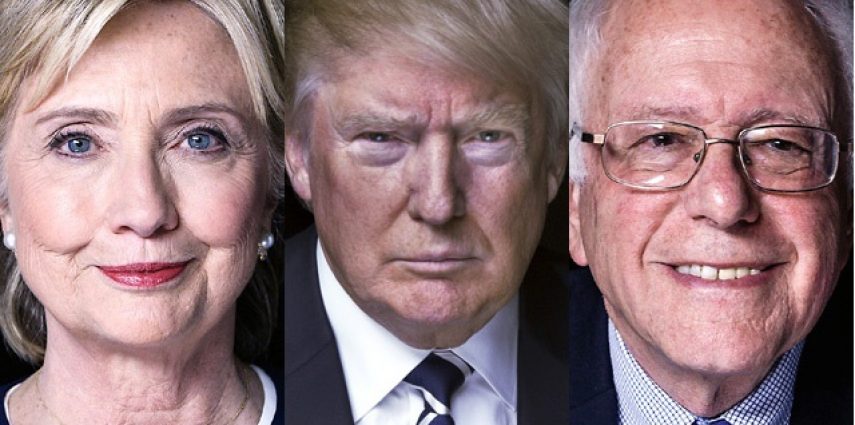Owning or running a small business is precarious in the best of circumstances. Like the “Butterfly Effect,” small gyrations by legislative and regulatory bodies can have a hurricane’s effect by the time it filters down to entrepreneurial businesses.
Just last week, the Department of Labor issued new rules regarding overtime pay for salaried employees that could help compensate exempt employees for extra hours worked. This, of course, seems exceedingly fair on paper and was squarely aimed at large companies that employ thousands of people in the salary range this regulation covers. Having them add several million to their payrolls hurts but is more annoying- like getting a papercut when reviewing a multi-national corporate P&L.
Having spoken to several small business owners over the last two weeks, their reaction is not encouraging. The immediate response was to start planning for more part-time employees, contractors or shipping work overseas. If the average small business sees wages increase 10% -15% across the board, that isn’t something many of them can digest between now and the first of the year. With one act, the DOL has put thousands of small businesses in jeopardy.
Couple this DOL legislation with the presidential race and three candidates with very different views on the economy and you have an incredibly uncertain environment for small businesses. Sanders, Clinton and Trump all have spoken directly about issues that affect businesses and their platforms are largely full of promises that speak to their base’s most fervent beliefs. So which candidate would be the best for small businesses?
Bernie Sanders
An admitted democratic socialist, Sanders fits the role of the working man’s candidate. A champion of raising taxes on the wealthiest 1% and increasing minimum wage more than 100%, Sanders has spoken to a segment of the voting public that has been underserved and underrepresented since the formation of our current political system. He has been relatively quiet on the issues of small businesses outside of the obligatory mention about how they are an integral part of the US economy.
Sanders has supported initiatives such as increasing the lending limits for SBA loans as well as the Small Business Jobs Act that created $30 billion in funds for smaller banks to loan.
Unfortunately for small businesses, Sanders’ minimum wage proposals, higher taxes on the wealthiest individuals and no concrete plan to pay for all of the other programs he has proposed will make it very difficult for businesses to scale. Running a successful business would be more expensive and less lucrative for the founders.
Donald Trump
Pinning Trump’s policy down is extremely difficult as his position seems to change hourly or depending on which cable news outlet is interviewing him. He has positioned himself as the only candidate who understands business, the economy and trade.
I’m extremely skeptical of his business acumen. He started his career as the president of his father’s firm which was worth about $200 million at the time. If that company had been liquidated and all of that cash rolled into the S&P 500, he would be worth roughly the same amount as he is now based on the last estimate of his wealth by Forbes- about $8.7 billion. Of course, Trump also claims his “brand” is worth in excess of $10 billion. I’m not sure how his brand has created jobs or stimulated the economy outside of his own bank accounts.
He has been sued excessively in his business career by partners, investors and employees. As of February of this last year, he has been party to at least 169 federal suits. He has filed bankruptcy 4 separate times and while a Chapter 11 restructuring can help a large business survive, it is usually not a viable option for small business owners.
Trump wants to significantly penalize foreign products through raising tariff rates- believing that will create more demand for American-made products. Unfortunately, the US is no longer the world’s manufacturing leader with labor rates 10-15 times higher than foreign countries. Many small businesses use strategic outsourcing to create advantages needed to compete with larger vertically-integrated companies. If their supply chain costs go up, they lose the ability to turn meaningful profits and self-fund their own growth.
Hillary Clinton
Clinton is probably the most mixed of the three candidates. While Trump can’t be pinned down to commit or even be consistent in his messaging, and Sanders is very pro-labor, Clinton seems to occupy a confusing middle ground.
Like Sanders, Clinton is pro-labor and pro-union. She has proposed a number of new regulations that would be imposed on businesses of all sizes. Pay transparency, fair scheduling, a rising minimum wage and employer-provided child care are all causes she has promoted vigorously. For the average small business owner, these regulations will certainly add direct operational costs as each business must expand its employee services and prove compliance.
Unlike Sanders, she has a long reputation of being Wall Street-friendly. A regular paid speaker for big Wall Street firms and the Clinton’s charitable foundations are direct beneficiaries of donations from those firms. She has talked about assessing “risk fees” to companies that are more likely to contribute to a potential financial crisis in the future and closing loopholes for hedge funds. She has not intimated she has any issues with Wall Street’s ability to generate capital itself and has not proposed putting any limitations on raising that capital.
There is no Truman Here
There were at least 8 presidents who owned and operated small businesses prior to being elected to the White House. Lincoln owned a general store and law practice. Harding bought a struggling newspaper. Harry S. Truman was a partner in a haberdashery. Many decades later, both George H.W. Bush and George W. Bush were successful business people before they became president.
Having the unique experience of being a small business owner or operator is not something that can be adequately imagined or synthesized. The only way to understand that is to actually do it.
Unfortunately, we don’t have any candidates currently running that have that background. Sure, Trump turned $200 million into $8 billion, but that seems like starting a marathon at mile 22 and only having to get to 26.2. Truthfully, none of these candidates can really commiserate with small business owners and hold any real credibility.
The Choice
Small business owners would need to choose between dealing with the increased regulations and legislation that Clinton and Sanders propose or the likely increase in supply chain costs with Trump. In many ways, it’s a coin flip between Sanders and Clinton as their policies are very similar. It’s probably simple enough to think of Sanders’s policies as a more extreme version of the Clinton platform.
Companies that would be better off with Clinton or Sanders:
- Businesses with fewer than 25 people
- Most current federal regulations apply to companies a bit larger so the extra operational cost of future regulations will not likely apply to smaller companies.
- Minimum wage increases are going to hurt, but there may be equitable ways of mitigating that cost with some careful planning.
- Operations that need access to small business loans or government-sponsored lending programs
- Companies that use imported products or supplies to build products or support services
- This would also include operations that manufacture overseas and ship into the US
Companies that would be better off with Trump:
- Large companies that need to find cost savings in their human resources
- Increases in minimum wage for companies with a large percentage of hourly employees could be difficult to absorb and would likely get pushed through to customers.
- Vertically integrated companies that manufacture domestically and haven’t been able to compete on price with foreign competition
- Companies that are trying to grow rapidly and have the ability to self-fund that growth
It’s important to recognize that all the candidates talk about doing things they really don’t have the constitutional authority to do. Most of the things they promise require some level of involvement from Congress, so this isn’t something they can magically create. I know many people will point to the number and frequency of President Obama’s executive orders as precedent for a future executive branch to make sweeping changes, but there are limitations to the President’s executive powers. The President does, however, expect their respective party to vote in support of their agendas. For that reason, it is very important to understand what each candidate would likely push and vote accordingly.

